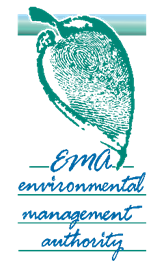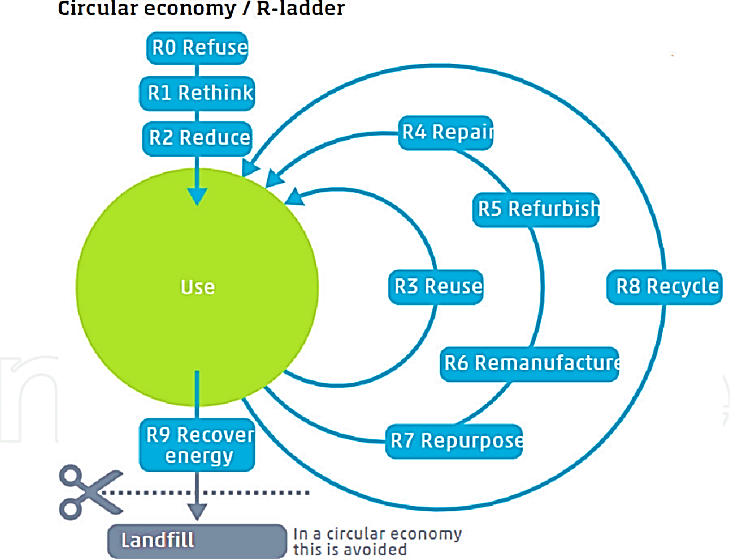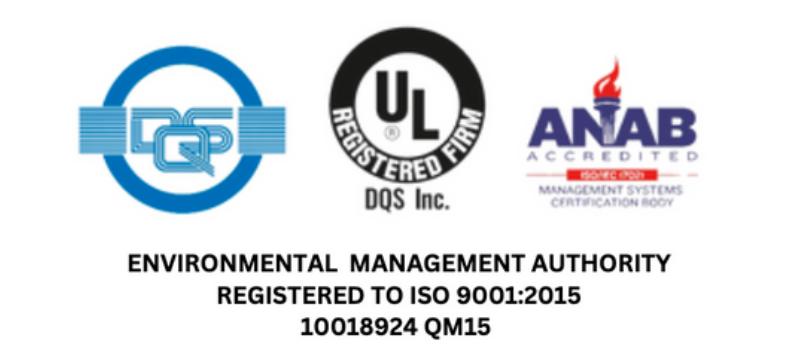

The Circular Economy
We live in a world where the linear economy, referred to as the take-make-dispose model, prevails. It exists where resources are used to satisfy consumer product demands leading to unnecessary wastage. In the linear economy many companies manufacture products, which originate from massive amounts of non-recyclable, non-biodegradable, non-reusable or non-renewable raw materials, which are consumed or utilized and later disposed of, in part or whole, as waste. When these actions are committed daily by millions of people all around the world, they can contribute greatly to the increase in not just waste but also toxic waste.
In a circular economy, however, the key objective is to design out product waste. It ensures that materials, products and services are kept in circulation to the furthest possible extent, thereby, contributing to improved sustainability through assisting with the challenges of resource scarcity, environmental pollution and degradation and creation of opportunities for new businesses.
According to Netherlands Environmental Assessment Agency (2017) there are ten strategies for action to a circular economy, which include: refuse, rethink, reduce, reuse, repair, refurbish, remanufacture, repurpose, recycle and recover.

10R-ladder of Circularity Strategies
Source: Netherlands environmental assessment agency [PBL Netherlands Environmental Assessment Agency. Circular Economy: Measuring Innovation in the Product Chain. 2017. Available from: www.pbl.nl/en/publications/circular-economy-measuring-innovation-in-product-chains [Accessed: 2023-09-15].
The Trinidad and Tobago Bureau of Standards (TTBS) has been actively promoting awareness of the Circular Economy, primarily through two projects; these are:
- The Quality Infrastructure for Circular Economy in Latin America and the Caribbean (QI4CE). German development cooperation supports this project which is jointly implemented by the Organization of American States (OAS) and the Physikalisch-Technische Bundesanstalt (PTB). The project leverages the technical competencies in metrology, standardization, accreditation, and conformity assessment for the Circular Economy of the organizations comprising the Quality Infrastructure of the Americas (QICA). The Capacity Building in Technical and Scientific Organizations using Regional Experience and Knowledge (CABUREK) methodology is applied to “increase the impact of Quality Infrastructure (QI) through the promotion of better relationship between the QI and its users and the better use of existing services and competences in the region, the strengthening of the demand and user orientation of QI institutions and the facilitation of the regional exchange on experiences and best practices. The aim is to develop new QI competences and services that address the needs of users (e.g. sectors, value chains, circular economy, private and public actors).”
- The National Mirror Committee for the ISO Technical Committee (TC 323) for Circular Economy. This Committee was convened to provide a national perspective on International Standards, for circular economy, being developed by the International Organization for Standardization (ISO). The NMC recently submitted comments on three international standards, namely:
- ISO/FDIS 59004 – Terminology, principles and guidance for implementation
- ISO/FDIS 59010 – Guidance on business models and value networks
- ISO/FDIS 59020 – Measuring and assessing circularity
There are several other organizations/companies contributing to the Circular Economy, in Trinidad and Tobago, albeit in different ways. The Environmental Management Authority (EMA) is one such organization. The EMA established the iCARE which is a Recyclable Solid Waste Collection Project, in 2015. It was the first national recycling initiative in Trinidad and Tobago. This project encourages citizens of all ages to recycle their used beverage containers such as plastic (PET/Type 1) bottles, drink cartons, aluminium cans and glass bottles by storing them in biodegradable bags and placing them in iCARE bins which can be found in various locations throughout the country. The project has been steadily progressing and the key objectives of the EMA to expand recycling infrastructure into schools and communities nationwide, increase public awareness and participation in recycling and to prepare the country for the implementation of the Waste Management Rules, 2021.
Further, the EMA participates in the National Mirror Committee (NMC) for ISO/TC 323 Circular Economy. Both TTBS and EMA are key institutions of the National Quality Infrastructure which covers the development and application of standards, conformity assessment, accreditation and metrology. The EMA plays a leading role in sustainably managing the natural resources and environment by providing a transparent framework to facilitate policy and decision making while the TTBS provides standards-based solutions to support effective regulation and promotes the use of QI services for trade competitiveness, market access and the socio-economic development of Trinidad and Tobago.
The EMA is committed to working with TTBS and other key stakeholders to increase awareness and the benefits of contributing towards the development of a circular economy to promote sustainability at a national level.
Authors: Environmental Management Authority and Trinidad and Tobago Bureau of Standards
For information on Quality Infrastructure in Circular Economy, please contact: adrienne.stewart@ttbs.org.tt
For further information on iCare, please contact: icare@ema.co.tt
For any other information on the work of EMA, contact:
Corporate Communications Unit
Environmental Management Authority
#8 Elizabeth Street, St. Clair, Port of Spain
Email: communications@ema.co.tt
Website: www.ema.co.tt
Tel: 226-4EMA(4362)
Standardization Division
Trinidad and Tobago Bureau of Standards
1-2 Century Drive, Trincity Industrial Estate
Macoya, Tunapuna
Website: gottbs.com
Tel: 662-TTBS (8827)


